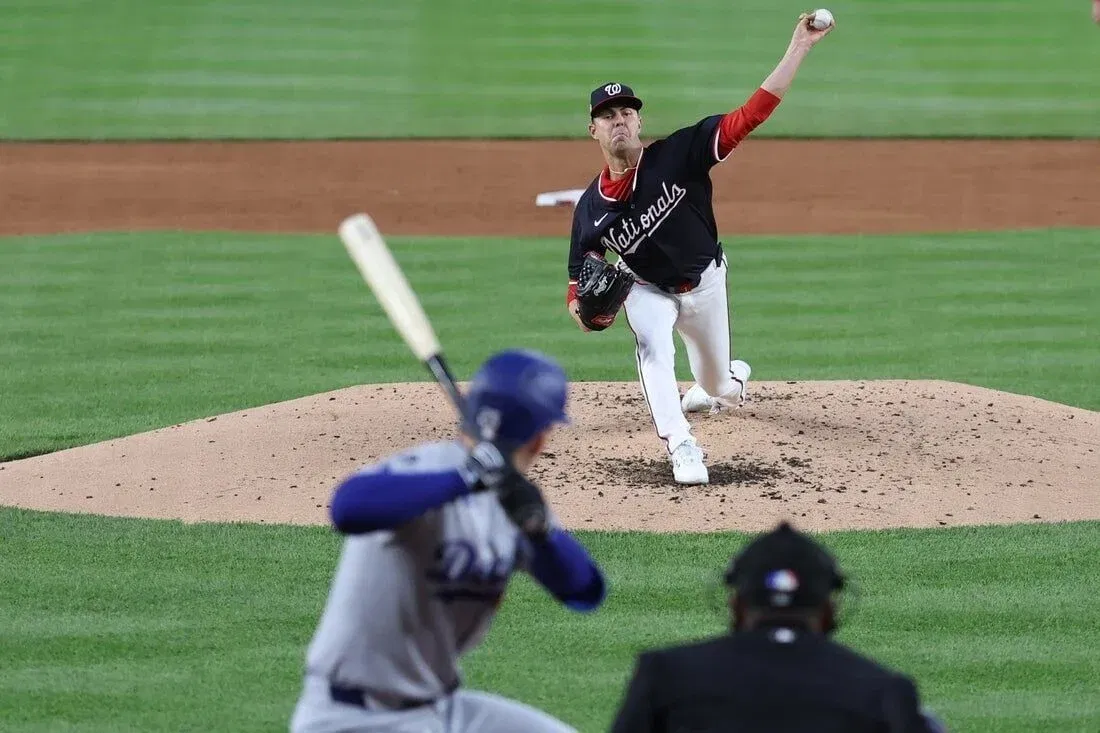

It started like any other at-bat—Bryan Reynolds digging in, Jorge López on the mound, game unfolding as usual. But then came a cutter that ran too far in and clipped Reynolds. No obvious intent, but enough to raise eyebrows. Then, just one pitch later, Andrew McCutchen stepped in. What followed wasn’t just another inside fastball—it was chin music. High, tight, and unmissable. McCutchen ducked, stared back. The dugouts emptied. Tensions rose. Baseball’s fuse had officially been lit.
Watch What’s Trending Now!
To casual viewers, it looked like typical baseball friction—pitch inside, batter unhappy, benches clear, nobody fights. But those inside the game saw something else: a line crossed. The pitch to McCutchen didn’t just miss location—it missed the unwritten code. Major League Baseball stepped in quickly, suspending López for three games (he’s appealing) and slapping a one-game ban on Nationals manager Davey Martinez (automatic, no appeal). But the sharpest words didn’t come from the league—they came from a veteran voice who knows the game’s boundaries better than most.
“You just can’t miss at the head. I’m sorry. You’re a big league pitcher. If you want to hit a dude, fine—hit him in the ribs. But not there. Never there.” That blunt assessment came from a two-time All-Star catcher A.J. Pierzynski, and it echoed what many players felt but wouldn’t say on camera.
"You just CAN'T miss at the head."@AJPierzynski12 reacts to last night's benches-clearing incident in Pittsburgh. pic.twitter.com/8vjdSKXwEl
— Foul Territory (@FoulTerritoryTV) April 17, 2025
And really, he’s right. Intent doesn’t always matter when the ball nearly clips a man’s face. You throw near someone’s head, you’re not just flirting with suspension—you’re playing with careers. McCutchen, one of the most respected veterans in the league, didn’t overreact. He didn’t flip a bat or puff his chest. He stood tall, said his piece, and let the league and public sort it out.
As for López, he owned it—sort of. “I didn’t make any purpose pitch right there,” he said. “I’ve been trying to find my way with my delivery… It’s really miserable to have that happen. I regret what just happened.” It sounds honest, but apologies don’t erase fear or erase fastballs thrown at eye level.
Let’s be real—baseball has always had a gray area when it comes to retaliation. But this wasn’t gray. It was black and white. And even if López didn’t mean to send a message, one got delivered anyway. And McCutchen’s reaction? Calm, but clear: That’s not okay. And when a catcher who’s called thousands of innings says you crossed the line, you probably did.
Not the first time, won’t be the last
If you’ve watched enough baseball, you know this isn’t someone-off eruption. Benches clearing after a high-and-tight heater? That’s practically woven into the fabric of the game—fiery, messy, and unforgettable. Just think back to 2019, when Amir Garrett of the Reds charged the Pirates’ dugout solo, fists flying after a brushback war turned nuclear. Or when Joe Kelly threw at Carlos Correa and sparked chaos between the Dodgers and Astros in 2020—one eyebrow raise and a pout later, both benches were on the field.
These aren’t just random outbursts, they’re emotional flashpoints where frustration, pride, and baseball’s “code” combust in real time. And while MLB has cracked down more in recent years, it’s clear that as long as pitchers keep throwing near heads, reactions will follow. Players don’t forget. And fans? They remember every second of the mayhem.
So no, this isn’t the first time a pitch set off fireworks, and with the game still policed by unwritten rules, it definitely won’t be the last.

